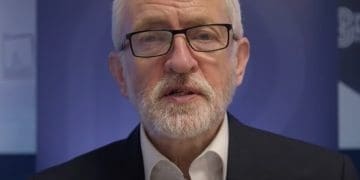Pacific Islanders expressed dismay on Thursday 1 June at Australia’s subsidies for fossil fuels, flagging climate concerns as a point of friction between the neighbouring nations.
The Australian government approved a new coal mine last month, sparking anger from environmental groups. The mine will be at Isaac River in Queensland.
Two Pacific ministers appeared in a joint livestream to condemn Australia‘s long and continuing enthusiasm for coal and gas projects.
Vanuatu’s climate change minister Ralph Regenvanu welcomed Australia’s pledge last year to transition towards renewable energy but said it must stop funding climate-damaging projects.
He told The Australia Institute, a Canberra-based think tank:
We are very disappointed to see that Australia continues to subsidise fossil fuel projects
We need money in the renewable energy sector. That’s where the future of our economies and our societies lies – not in the fossil fuel industry.
Regenvanu also questioned why the Australian government continues to pump:
billions of dollars into the fossil fuel industry, which we in the Pacific have agreed, including Australia, is the greatest threat to our security.
Vanuatu is, like many Pacific Island nations, a small archipelago. As a result, rising sea levels threaten its existence.
Speaking alongside Regenvanu, Tuvalu’s finance minister Seve Paeniu said Pacific nations are currently weighing a commitment to make the region fossil-free. Paeniu said the commitment will stop “any further expansion of fossil fuel”. It will also eliminate the use of coal, oil, and natural gas. The finance minister added:
It’s a matter of our security and our survival.
Tuvalu, midway between Hawaii and Australia, is one of the smallest nations in the world, made up of less than 26km² (10m²) and shrinking fast. Paeniu continued:
Our land is constantly being eaten away… And we know that fossil fuel is the cause of climate change.
Australia ‘isn’t recognising’ the Pacific’s main security threat
Australia has pledged that 82% of its electricity will come from renewable sources by 2030. The current figure is around 30%. But it is one of the world’s largest coal and gas exporters, and a series of governments have resisted pressure to scale back the industries.
Regenvanu said there are tensions in Vanuatu’s relationship with Australia over climate change. He accused Australia of:
not recognising the main security threat to the Pacific.
Regenvanu said that Vanuatu is still under a state of emergency. He said that the island was being battered this year by:
unprecedented event of two Category Four cyclones within a few days.
He estimates fixing the damage will cost more than 40% of Vanuatu’s gross domestic product, which the International Monetary Fund puts at around $1bn.
Regenvanu said:
We’re not seeing the emissions reduction that we need to see happen.
Eco-defenders in Australia need our support
It’s clear that the Australian government won’t move away from fossil fuels without a serious push. Environmental groups are alarmed at the government’s decision to approve the new Isaac River mine.
People in Australia are already taking direct action to stop another mine in Queensland’s Galilee Basin. Eco-defenders there are organising to stop Indian multinational company Adani from extracting coal out of land owned by the Wangan and Jagalingou First Nations people. Adani’s export of coal from this Carmichael mine is devastating the Great Barrier Reef. Environmental campaign group Greenpeace says that the mine is one of 14 global megaprojects which are set to cause global warming of five to six degrees. The stakes are high, and those opposing the project are calling for international support.
Check out the campaign here, and find out about the companies involved in the Adani mine here.
Via Agence France-Presse, additional reporting by Tom Anderson
Featured image via Wikimedia Commons – Lily-Anne Homasi / DFAT (cropped to 770 x 403px)









